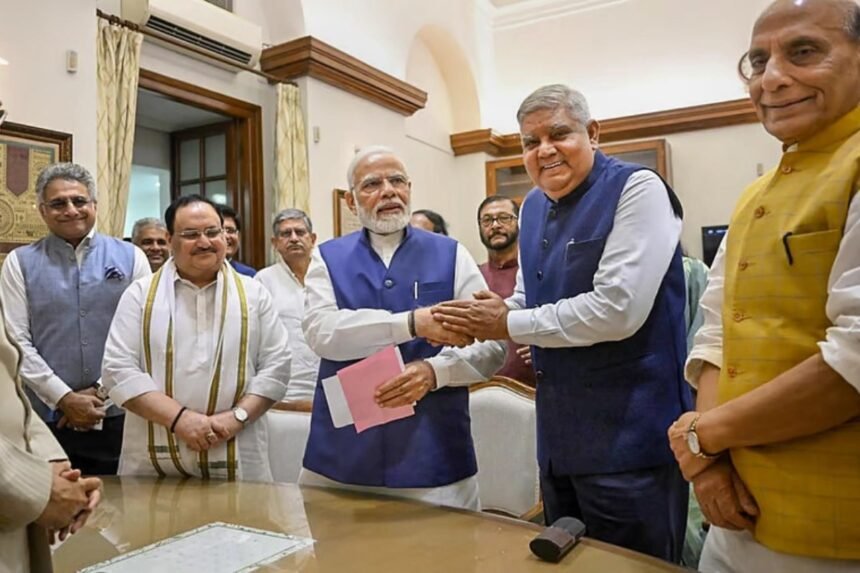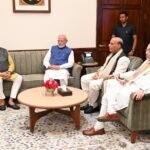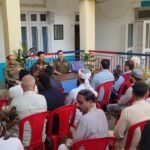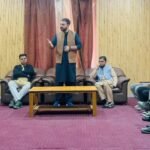The Parliament Monsoon Session concluded on Thursday, ending as tumultuously as it began on July 21, with the opposition continuing to press on the Special Intensive Revision (SIR) in poll-bound Bihar.
The session opened with a major shock: former Vice President Jagdeep Dhankhar’s resignation, which sparked speculation and led to an unplanned election for the post.
The pause of Operation Sindoor and the Election Commission of India’s SIR process fueled opposition unrest, while the government’s move to introduce a constitutional amendment bill targeting “tainted” lawmakers added to the House chaos.
PM Modi vs Rahul Gandhi
During the heated Operation Sindoor debate, Prime Minister Narendra Modi and Lok Sabha Leader of Opposition Rahul Gandhi exchanged sharp criticisms. Modi accused the Congress of trusting Pakistan more than its own government and armed forces, while Rahul Gandhi alleged that the government restricted Indian pilots’ actions and claimed Operation Sindoor was conducted to protect the Prime Minister’s image.
Former Vice President Jagdeep Dhankhar resigned unexpectedly, citing health reasons, with two years remaining in his five-year term. His sudden exit has sparked widespread speculation and conspiracy theories.
Dhankhar becomes only the third Vice President in India’s history to resign before completing the term, following VV Giri and R Venkataraman. His resignation on the very first day of Parliament’s Monsoon Session has left political analysts searching for explanations beyond the stated “health reasons.”
Yashwant Varma Impeachment Panel
Lok Sabha Speaker Om Birla announced the formation of a three-member committee to investigate allegations against Justice Yashwant Varma in connection with the “cash-at-home” controversy. The panel includes senior advocate PV Acharya (Karnataka High Court) as the jurist member, SC Judge Aravind Kumar, and Madras High Court Chief Justice Manindra Mohan Shrivastava.
Row Over Special Intensive Revision (SIR)
Throughout the session, the INDIA bloc continued protests against SIR inside and outside Parliament, accusing the Election Commission of India (ECI) of “vote theft.” Key leaders vocal on the issue included Congress chief Mallikarjun Kharge, Rahul Gandhi, Priyanka Gandhi Vadra, Samajwadi Party leader Akhilesh Yadav, TMC MP Mahua Moitra, and AAP MP Sanjay Singh.
The protests, which began at the start of the session, involved banners reading “Stop vote chori” and claims that the ongoing revision of electoral rolls represented “silent invisible rigging.” Ruling party MPs accused the opposition of deliberately disrupting proceedings.
Bill Against ‘Tainted’ Ministers
In the Lok Sabha, Union Home Minister Amit Shah tabled a set of three bills mandating the resignation or removal of the Prime Minister, Chief Ministers, and Union/State Ministers if they are under arrest or detention for 30 consecutive days on allegations of offences punishable with imprisonment of five years or more.
‘Tainted Ministers’ Bill
The new amendments stipulate that a Prime Minister, Chief Ministers, or Union/State Ministers under arrest for 30 consecutive days must resign or be removed. However, nothing prevents them from being reappointed to the same office by the President or Governor once released from custody. The timing of the amendments—just two days before the end of the Monsoon Session—and their implications took political circles by surprise.
Bill to Ban Online Money Games
On Thursday, Parliament passed the Promotion and Regulation of Online Gaming Bill, 2025, with the Rajya Sabha approving it without debate amid protests. Piloted by Electronics and IT Minister Ashwini Vaishnaw, the bill seeks to ban all forms of online money games while promoting eSports and online social gaming. Amendments proposed by opposition members were rejected.
The Lok Sabha had already passed the bill on Wednesday. It also prohibits advertisements for online money games and bars banks and financial institutions from facilitating or transferring funds for such games. Online money games involve depositing money with the expectation of winning monetary or other rewards.
NDA vs INDIA Battle Over Vice Presidential Post
For the first time since Independence, India’s vice-presidential election will feature candidates from the South fielded by both the ruling and opposition alliances, underlining the region’s growing significance in national politics.
The NDA has nominated CP Radhakrishnan from Tamil Nadu, while the INDIA bloc has chosen Justice B Sudershan Reddy, a former Supreme Court judge from Telangana, as its candidate for the Vice President’s post.
Political analysts say these choices carry strategic significance. For the BJP, nominating Radhakrishnan signals a sharper focus on Tamil Nadu, where the party has historically struggled. For the INDIA bloc, selecting Justice Reddy highlights the South’s growing parliamentary influence and aligns with its campaign theme of “saving democracy and the Constitution.”
Bills Passed During Monsoon Session
During the month-long session, the Lok Sabha passed 12 bills and the Rajya Sabha passed 14 bills. However, repeated disruptions, adjournments, and walkouts have limited legislative business. Aside from discussions on Operation Sindoor, the session saw little progress due to opposition protests over both Operation Sindoor and the Special Intensive Revision (SIR) exercise in Bihar.
Om Birla Criticises Opposition as Monsoon Session Concludes
Lok Sabha Speaker Om Birla formally concluded the Monsoon Session, expressing concern over the lack of decorum and traditions in the House. In his final address, he criticised the opposition for “planned disruptions” and “sloganeering”, stressing the importance of dignified discussions.
Speaker Birla noted that the House managed only 37 hours of productive work, far short of the targeted 120 hours, attributing the limited productivity to continuous disruptions and ruckus during the session. (Agencies)









